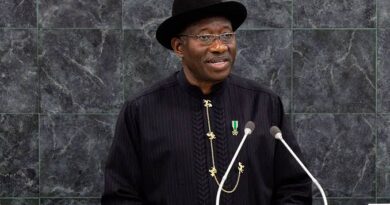Shell Invests $2bn in Nigeria’s Offshore Gas Project as Tinubu Reforms Attract $8bn Energy Commitments
Shell Invests $2bn in Nigeria’s Offshore Gas Project as Tinubu Reforms Attract $8bn Energy Commitments
Global oil and gas giant Shell has announced a $2 billion investment in Nigeria’s offshore gas sector, marking another major milestone in the country’s efforts to boost energy production and attract foreign investment.
The project, located in the HI Field (OML 144), is expected to deliver about 350 million standard cubic feet of gas per day (mmscf/d) by 2028 — nearly one-third of the gas supply needed for the Nigeria LNG (NLNG) Train 7 expansion.
President Bola Ahmed Tinubu hailed the development as further proof of growing international confidence in Nigeria’s energy reforms, describing it as “a clear validation of our reform efforts and a signal to the world that Nigeria is fully open for business.”
READ ALSO: Female Customs Officer, Akpevwe Ogboru, Completes 72-Day Solo Ride Across 22 Countries
The announcement, contained in a State House statement signed by Bayo Onanuga, the President’s Special Adviser on Information and Strategy, brings total upstream investment commitments under the Tinubu administration to over $8 billion within 18 months.
According to the Presidency, Shell’s Final Investment Decision (FID) represents Nigeria’s third major oil and gas investment in less than two years, following the Ubeta Non-Associated Gas project and the Bonga North deepwater development.
Both the Ubeta and HI Field projects are expected to supply up to 15 per cent of total gas feedstock required by NLNG’s Trains 1–7, strengthening Nigeria’s position as a major gas exporter.
The Presidency credited the new wave of investments to targeted fiscal and regulatory reforms initiated by Tinubu since 2024, including clearer operating frameworks, reduced approval timelines, simplified contracting processes, and cost-efficiency measures across the sector.
“These reforms, now backed by legislation, have restored global investor confidence and repositioned Nigeria as a competitive energy investment destination,” the statement said.
Special Adviser to the President on Energy, Olu Arowolo Verheijen, said the new projects will help transform Nigeria’s energy economy by expanding export capacity and promoting domestic gas utilisation.
“With the Ubeta FID and now the HI FID, we have secured the gas supply needed to make NLNG Train 7 not just possible but transformative,” Verheijen said.
“These projects will strengthen Nigeria’s LNG exports, expand LPG supply for domestic use, and promote clean cooking access for millions of households.”
She added that more investment decisions are expected soon, as Nigeria continues to unlock gas fields discovered decades ago but left undeveloped due to fiscal bottlenecks.
Shell’s Upstream President, Peter Costello, said the new project reinforces the company’s confidence in Nigeria’s long-term energy potential.
“Following recent decisions on the Bonga deep-water development, today’s announcement demonstrates our continued commitment to Nigeria’s energy sector,” he said.
“This upstream project will grow Shell’s integrated gas portfolio while helping Nigeria expand its role in the global LNG market.”
The HI Field, discovered in 1985, is a shallow offshore field expected to boost Nigeria’s gas exports while also supporting domestic supply.
The NLNG Train 7 project, currently under construction, aims to increase Nigeria’s LNG production by 8 million metric tonnes per annum — a 35 per cent rise in capacity.
The Tinubu administration projects that the new investments will: Expand Nigeria’s LNG exports and foreign exchange earnings, increase local LPG (cooking gas) supply, reducing imports and create thousands of direct and indirect jobs.
It will also stimulate SMEs in host communities through service contracts an strengthen Nigeria’s reputation as Africa’s gas powerhouse.
President Tinubu praised Shell’s new investment — its second in Nigeria within one year — as a vote of confidence in the government’s ongoing energy and fiscal reforms.
“This major FID announcement by Shell shows that our reforms are working,” Tinubu said. “Nigeria is fully open for business and investment.”
The President reiterated his commitment to sustaining a stable policy environment that will continue to attract global capital to Nigeria’s energy sector.
The HI gas field, discovered four decades ago, had long remained undeveloped due to poor fiscal terms.
Its revival under Presidential Directive 40 — which introduced competitive incentives for non-associated gas projects — underscores Tinubu’s strategy of combining policy reform with investor partnership.
The government expects additional FIDs in coming months as more energy companies finalize investment decisions under the revised framework.




